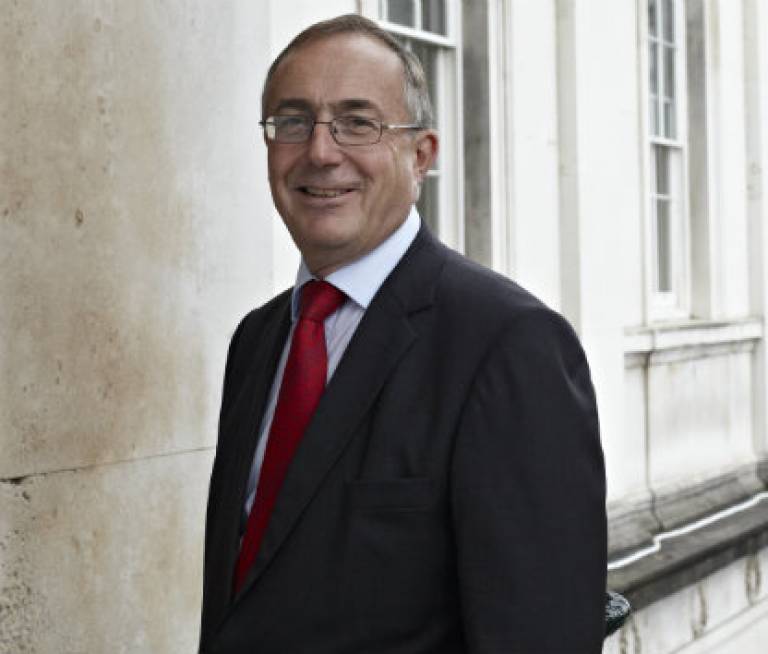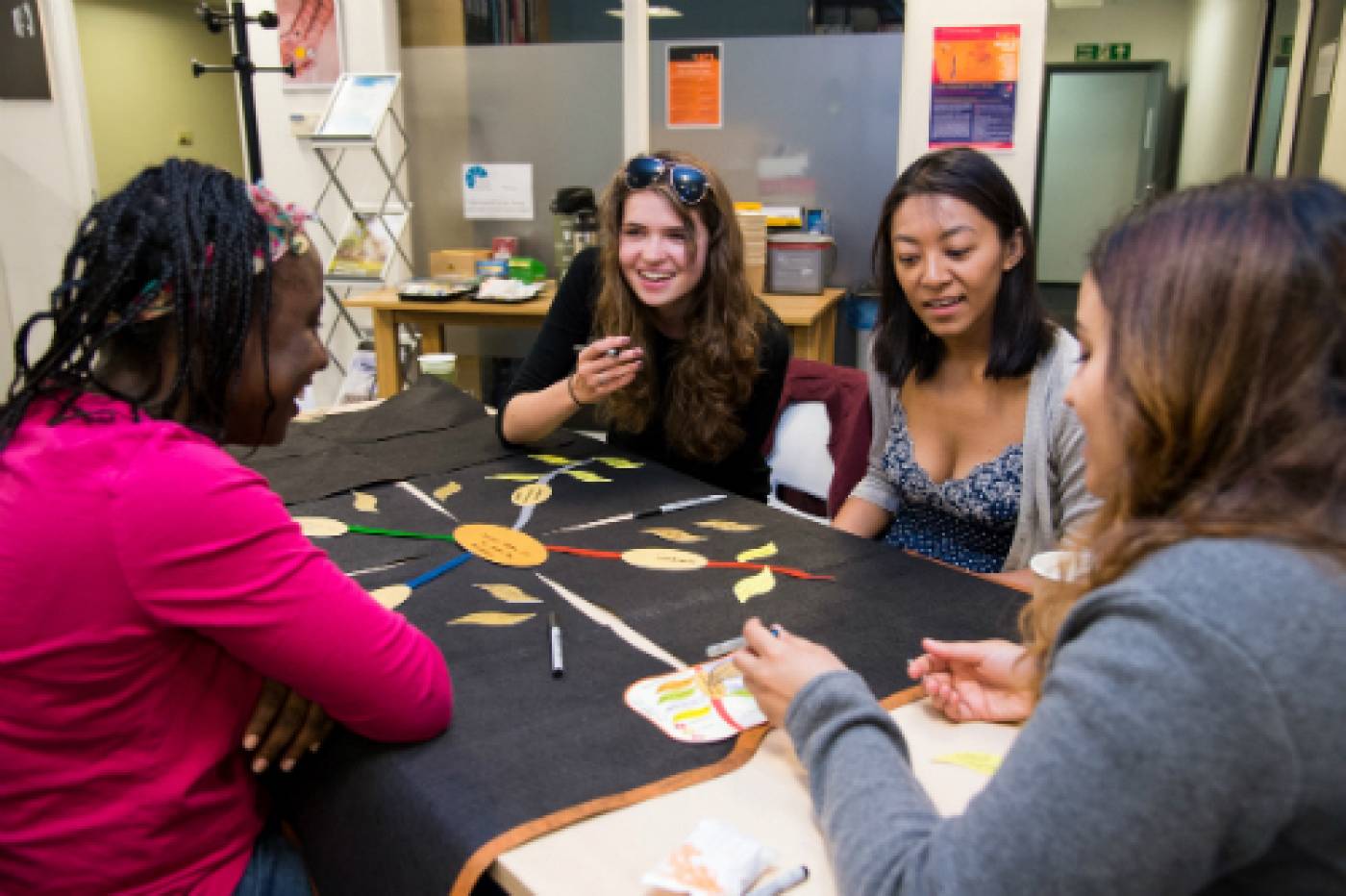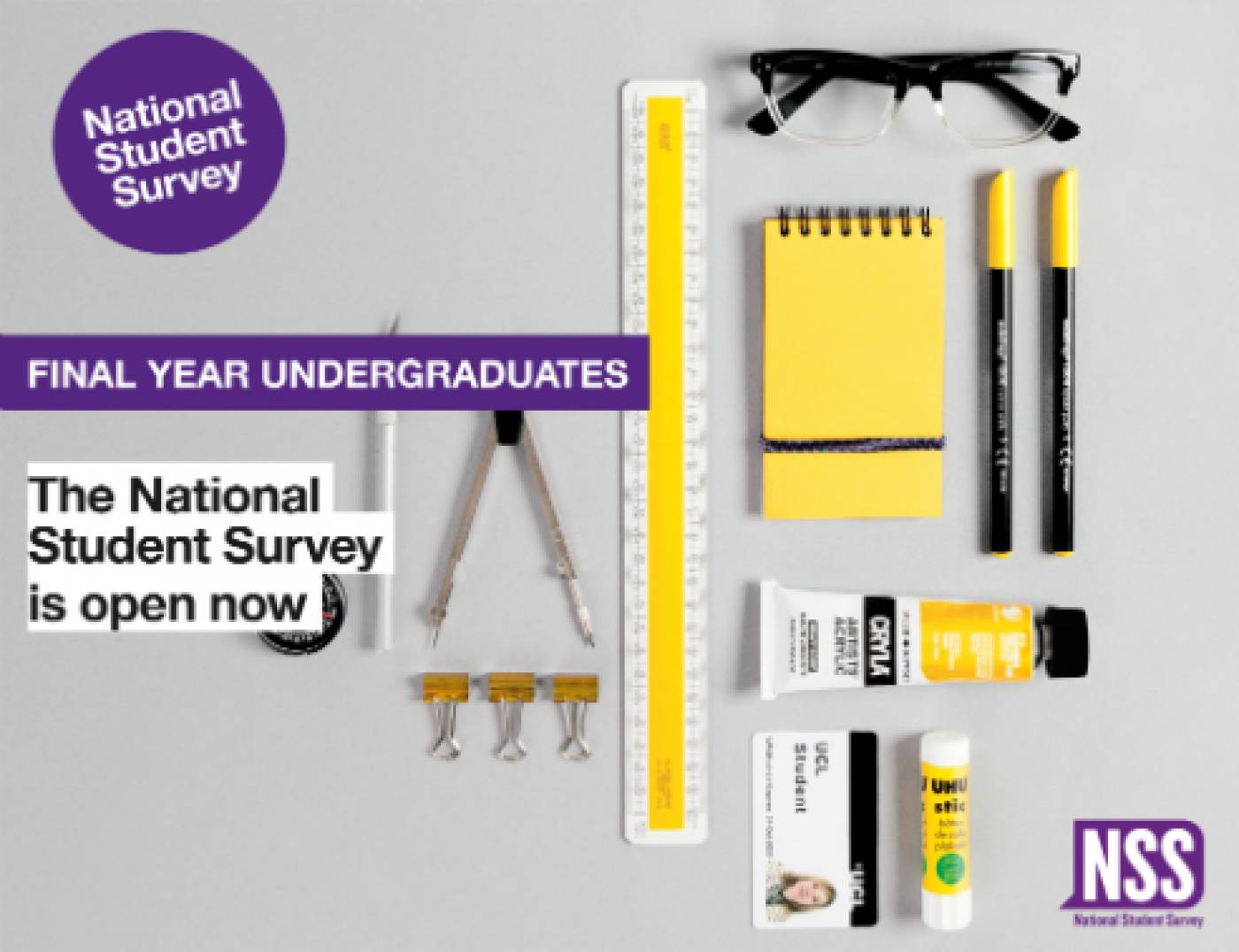Provost's Perspective: You shape UCL - why we really mean it
10 March 2017
We are already two-thirds of the way through the academic year.
 After the maelstrom of first term, we reach more of an
equilibrium in spring.
After the maelstrom of first term, we reach more of an
equilibrium in spring.
Those of you who arrived at UCL for the first time in the autumn last year will have settled in and your ideas and approaches are challenging us in a way that keeps our thinking fresh.
Your time at UCL will certainly have been shaped and improved by the ideas and views of students who are no longer here. In turn, your voice will shape UCL for years to come.
Creating a culture of student engagement and leadership is one of the objectives of our Education Strategy.
This means not only placing student feedback and insights at the heart of our decision-making but also giving our students the chance to get actively involved in creating and shaping UCL policy and practice.
How do we know whether we are making real, sustainable improvements to UCL education and your experience as students? By asking for feedback at every stage of the student journey.
The National Student Survey
One of the most powerful tools to make your voice heard is the National Student Survey (NSS), taken by final year undergraduates, and we set great store by the fact that we raised the response rate from 62% in 2013's NSS to 79% in the 2016 survey (against a sector average of 72%).
The government's new Teaching Excellence Framework (TEF) will use the NSS results, among other metrics, to assess teaching quality at universities. In turn, the TEF results will be linked to a university's ability to increase their fees by the rate of inflation.
I argued against this linkage from very early on, but ministers have been clear that this was a manifesto commitment and are going ahead. I understand why this has led to UCLU calling on final year undergraduate students to boycott this year's NSS.
I know from my regular meetings with the sabbatical team that both they and I feel that this makes working together on the NSS that bit more difficult, but we are absolutely committed to the principle of partnership that we set out in UCL's long-term strategy, UCL 2034.
In response to NSS, we have made improvements across every area of UCL - from education and employability to health and wellbeing and facilities.
For example, last year, we asked every department to take action to improve assessment and feedback. We were encouraged to see that every question in the 2016 NSS relating to assessment and feedback saw an increase in satisfaction rates.
Surveys and module evaluations help us identify trends and establish priorities - we then follow up with more in-depth collaboration, where your views and ideas truly shape UCL.
Through focus groups, panels, staff-student consultative committees and steering groups, our students come up with solutions to problems, ideas for development and rock-solid proposals for improvement.
Deep levels of engagement happen through our Student Academic Representatives scheme (StARS), UCL ChangeMakers and Student Quality Reviewers.
Your role in how UCL is governed
Student participation in the governance of UCL is well established: 16 of UCL's 20 formal committees now have a total of 52 student members. 28 ex officio places are filled by sabbatical officers from UCLU; the other 24 are filled by nomination from among the student body, including 15 student members to Academic Board.
Thanks to the commitment of UCLU, the StAR system has grown impressively since it began in 2013. This year, we have 1,395 student reps across 11 faculties and StARs are now trained and paid stipends to be full members of all Internal Quality Review panels.
StARs also judge the Student Choice Teaching Awards, which recognise outstanding contributions to students' learning from teaching staff (get your nominations in before 24 March).
Last year, there were 353 nominations, up from 89 nominees when the awards began five years ago.
How you can shape UCL education

UCL ChangeMakers is our flagship student partnership initiative to make UCL education better. ChangeMakers devise their own curriculum enhancement projects, or implement department-commissioned projects, receiving project funding as well as a stipend.
Staff in departments have told me how much they value the expertise and enthusiasm of students who want to help make positive change at UCL.
If you have ideas for a project, talk to staff in your department (the UCL ChangeMakers team is currently offering £5 vouchers so that you can take them out to tea!) and get in touch with the team - the next funding round for UCL ChangeMakers is open until late June.
Improvements driven by your feedback
Our move to 24-hour opening in 2015 in all major libraries on campus was a direct response to student feedback, and we have invested substantially to make sure that students can access UCL libraries resources outside of core hours.
We have created hundreds of extra study spaces and all learning spaces have been refurbished and equipped with full access to data points and Wi-Fi, at a cost of more than £1.2 million.
We have extended the range of emotional and psychological support available to students, including evening appointments and an out of hours telephone counselling service available 365 days a year.
And our students continue to drive change. We will be expanding Lecturecast, UCL's lecture recording service that has proved hugely popular with you since its introduction five years ago.
The New Student Centre, which is being developed in close consultation with students, will include 1,000 new study spaces; 'Careers readiness' profiling is being introduced so that we can understand the support you need and target our investment appropriately; and a new model will improve personal tutoring across the university.
It is our priority to respond quickly and directly to student concerns, given the significant investment you are making in your futures.
Thanks to you, we have many plans for improvement - in such a large and complex organisation, bringing the more ambitious ones to fruition can take years.
I hope you will take advantage of every opportunity to make yourself heard and to shape your education and that of your fellow and future students.
Professor
Michael Arthur
UCL
President & Provost
 Close
Close


